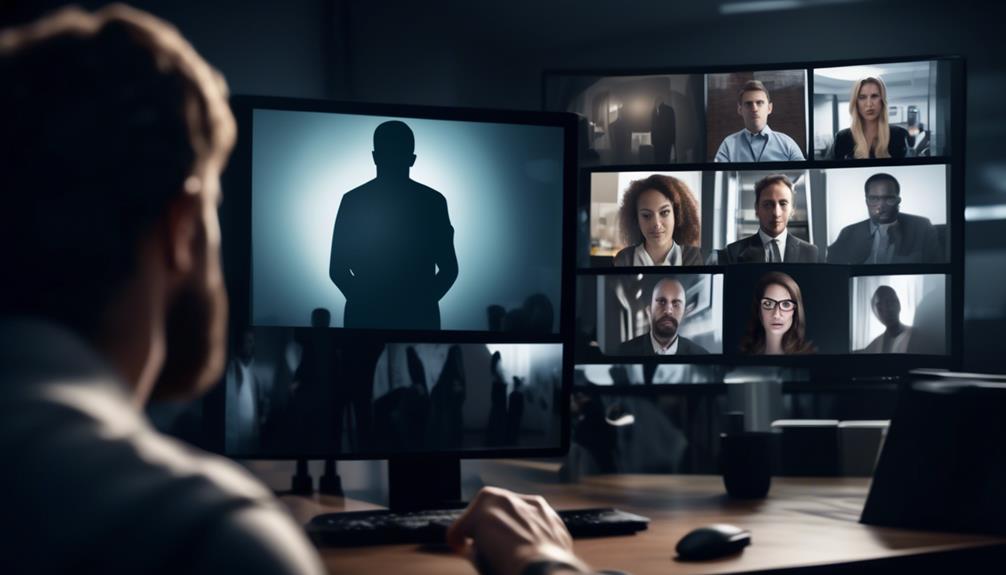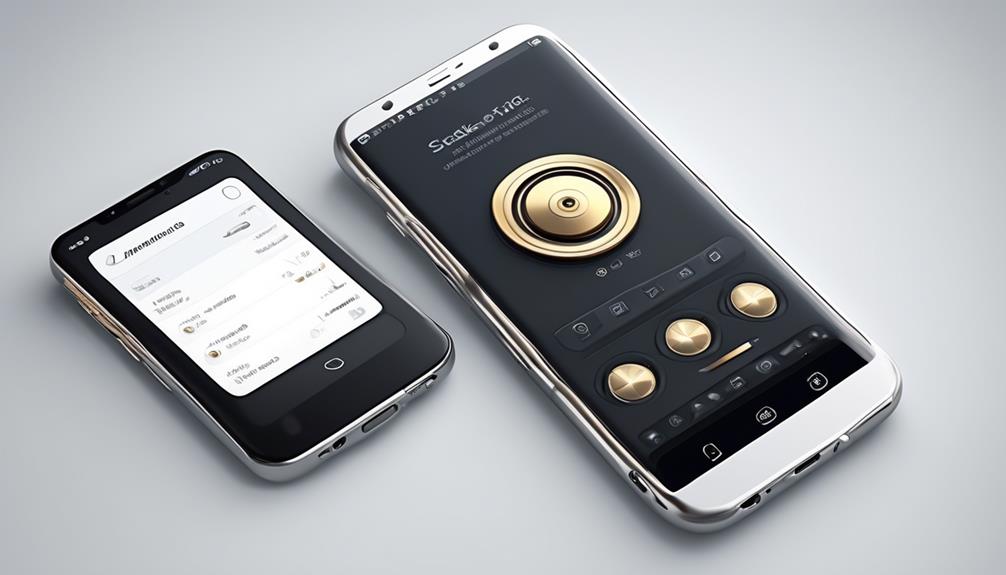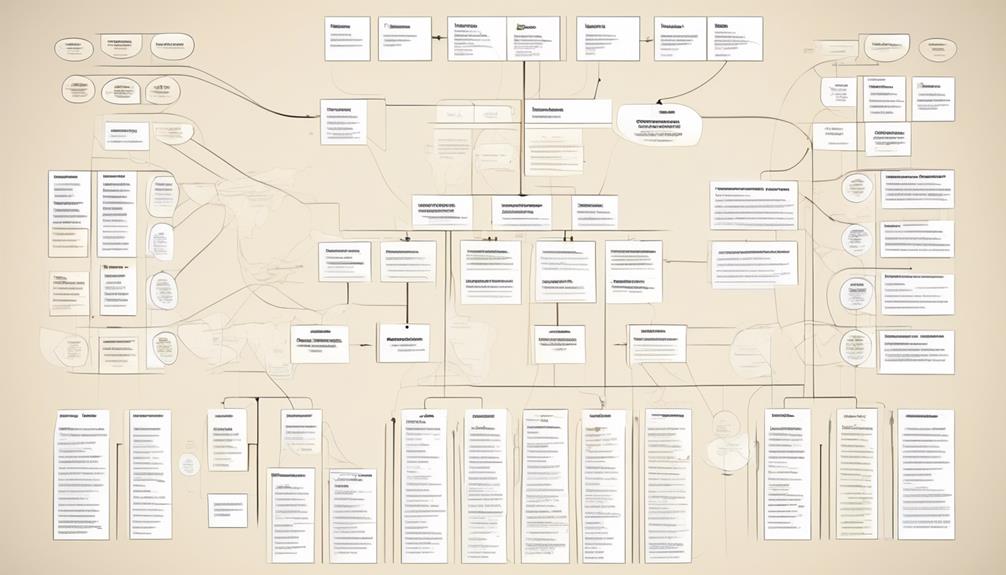Have we all heard about the rumors circulating about employers listening in on Teams calls? How accurate are these rumors?
As we navigate the modern workplace, the question of whether Teams calls can be monitored by an employer has become increasingly important.
The implications for privacy rights and the legalities surrounding this issue are complex and multifaceted.
So, can your employer really listen in on your Teams calls? Let's dive into the details and unravel this intriguing topic.
Key Takeaways
- Employers must adhere to legal limitations when monitoring Teams calls, including explicit disclosure for personal audio calls.
- Microsoft's commitment to privacy means personal audio calls are not monitored, but compliance policies may allow automatic recording of meetings.
- Monitoring Teams calls raises issues regarding the privacy rights of employees, and employers should consider privacy implications and respect employee privacy rights.
- Microsoft Teams offers monitoring tools for employers to track calls, meetings, and extract information, but limitations are in place to protect the privacy rights of employees.
Legalities of Teams Call Monitoring
Employers must adhere to strict legal limitations when monitoring Teams calls, as personal conversations over audio calls can't be monitored without explicit disclosure by one of the participants. Microsoft's commitment to privacy means that personal audio calls aren't monitored. Compliance policies may allow organizations to automatically record meetings, but this doesn't extend to private calls. However, it's important to note that private audio calls aren't recorded or captured for subsequent processing and retention. Even users under the compliance policy are aware of the recording but can't disable it or access it once the interaction is complete.
From a legal standpoint, the monitoring of Microsoft Teams calls by employers raises issues regarding the privacy of employees. The employer's ability to access usage data and chat data brings forth implications concerning the boundaries of private communication. While an employer can see usage data, the monitoring of private conversations without explicit consent may infringe upon the employee's privacy rights.
Therefore, it's crucial for employers to navigate the legalities of Teams call monitoring with caution to ensure compliance with privacy regulations and to respect the privacy of their employees.
Implications for Privacy Rights

The legal limitations surrounding the monitoring of Microsoft Teams calls by employers raise significant implications for the privacy rights of employees, particularly in the context of accessing usage data and chat data.
While employers are restricted from monitoring personal conversations over audio calls unless disclosed by one of the participants, there are concerns about the potential for abuse, particularly in state-run organizations. Microsoft's commitment to privacy includes safeguards to prevent the monitoring of personal audio calls, although compliance policies may allow for the automatic recording of meetings, not private calls. This introduces a potential loophole that could infringe upon employees' privacy rights.
Furthermore, the capability for employers to view Microsoft Teams chat history for specific reasons such as investigations or allegations of misconduct raises additional privacy concerns. Although there are controls and processes in place to govern this capability and prevent misuse, the implications for employee privacy rights remain significant.
It's essential for employers and organizations to carefully consider the privacy implications of monitoring teams calls and to ensure that any monitoring activities are conducted in a manner that respects the privacy rights of employees.
Microsoft Teams Monitoring Tools
When considering the Microsoft Teams monitoring tools, it becomes evident that the platform offers employers the capability to track calls and meetings, extract information from the admin center, and utilize built-in recording features to access employees' meeting details.
Employers can monitor Microsoft Teams calls and meetings by accessing the admin center, which provides them with the ability to extract information such as messages, calls, and app usage.
Additionally, the built-in recording feature allows employers to review and access employees' meeting details, including the duration of the meetings and the participants involved.
However, it's important to note that personal conversations over audio calls can't be monitored unless disclosed by one of the participants.
This demonstrates that while employers have access to certain monitoring tools within Microsoft Teams, there are limitations in place to protect the privacy rights of employees.
Employee Monitoring Vs. Spying

In considering the ethical and legal implications of employee monitoring, it's crucial to distinguish between legitimate oversight and intrusive surveillance practices.
Employers have the right to monitor certain aspects of employee activity on Microsoft Teams, such as tracking calls, meetings, chats, time spent online, screen sharing, and deleted messages. However, there's a fine line between monitoring for legitimate business purposes and engaging in spying behavior.
Legitimate monitoring involves tracking employee data to ensure productivity, compliance, and security within the organization. On the other hand, spying entails unauthorized or excessive surveillance that violates employee privacy rights.
While employers have the right to monitor work-related activities, they shouldn't engage in covert surveillance or intrude on employees' personal conversations and activities. It's essential for employers to establish transparent monitoring policies and clearly communicate the extent of monitoring to employees.
Recognizing Workplace Monitoring
To effectively navigate the complexities of workplace monitoring, organizations must clearly delineate the parameters for monitoring and ensure alignment with privacy regulations and employee rights. When it comes to Microsoft Teams calls, it's essential for both employers and employees to recognize workplace monitoring.
Here are key points to consider:
- Microsoft's Commitment to Privacy: Microsoft is committed to privacy and doesn't monitor personal audio calls. This means that private conversations over audio calls on Microsoft Teams aren't subject to monitoring by the employer unless disclosed by one of the participants.
- Compliance Policies and Recording: While compliance policies may allow organizations to automatically record meetings, this doesn't apply to private calls. Users under the compliance policy will be aware of the recording but can't disable it or access it once the interaction is complete.
- Employer's Right to Monitor: Employers may have the ability to monitor Microsoft Teams user activity, including chat and call logs. However, it's crucial for employers to ensure that any monitoring aligns with privacy regulations and is conducted for valid reasons related to business operations.
Understanding and recognizing workplace monitoring in the context of Microsoft Teams calls is essential for both employers and employees to uphold privacy and compliance standards.
Frequently Asked Questions
Can Your Boss Track You Through Teams?
In the context of privacy concerns, it's important to address the issue of whether employers can track employees through Teams. Legal implications, employee rights, and surveillance laws come into play.
Ethical boundaries and workplace trust are also significant. Remote work monitoring and digital privacy raise questions about consent requirements and data security.
It's crucial to ensure that any monitoring aligns with privacy laws and respects employees' rights.
Can Employers View Teams Calls?
Yes, employers can view Teams calls for legitimate business purposes. However, this raises privacy concerns, legal implications, and ethical considerations.
Such monitoring must align with employee rights and communication boundaries while addressing data security and trust issues. Surveillance technology in remote work brings challenges, necessitating transparent policies and respectful handling of personal conversations.
Balancing monitoring needs with privacy rights is crucial for fostering a productive and trusting work environment.
Are Teams Calls Recorded by Company?
Teams calls aren't recorded by the company in accordance with privacy concerns. However, employers can access chat history for legal and productivity monitoring.
Employee rights and data security are crucial in remote work settings. Monitoring software raises ethical considerations and workplace surveillance. It's essential to balance trust and transparency while using communication tools.
Legal implications must be considered to ensure compliance with privacy laws while safeguarding organizational interests.
Can Your Employer Record Teams Calls Without Your Knowledge?
Yes, it's crucial to understand privacy rights, legal implications, and employee consent when considering whether an employer can record Teams calls without knowledge.
Company policy, surveillance laws, and technology limitations play key roles.
Balancing personal boundaries, workplace trust, and data security align with ethical considerations.
This issue requires a comprehensive approach that respects both the rights of the employer and the employees.
What Privacy Rights Do Employees Have on Microsoft Teams Calls?
When using Microsoft Teams for work, it’s important to “know your employee rights” regarding privacy. Employees have the right to privacy during Teams calls, and employers should not monitor or record conversations without permission. It’s essential for both employees and employers to understand and respect these rights.
Conclusion
In conclusion, as employees, we must be aware of the potential for our Microsoft Teams calls to be monitored by our employers. It's important to understand the legal implications and our privacy rights in this context.
While monitoring tools may be utilized for legitimate reasons, it's crucial for organizations to prioritize employee privacy and handle access to chat history responsibly.
Just as we safeguard our physical belongings, we must also protect our digital conversations like we'd lock our personal diaries.










